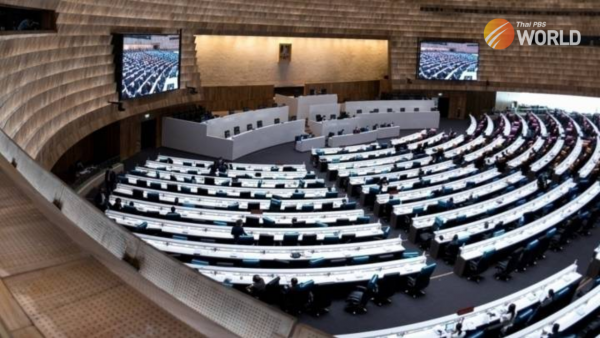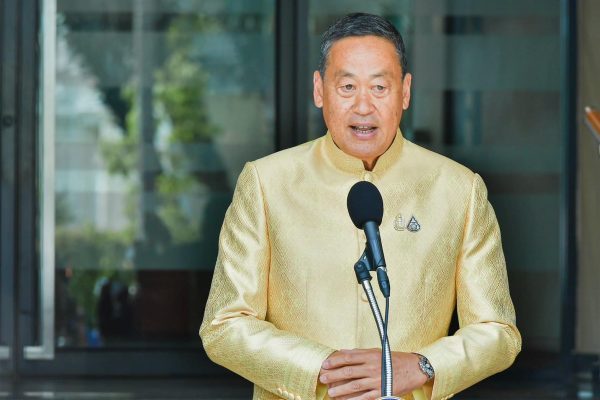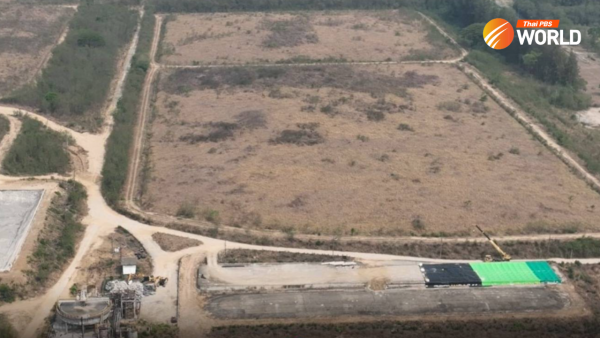To mask or not to mask: East and West have different views

As the Covid-19 pandemic sweeps the globe, scientists have highlighted an anomaly: while the number of infections and fatalities continues to rise in the West, the contagion is gradually subsiding in Asia.
Experts and observers say the divide may be due to Asians’ habit of wearing face masks in public.
Many Asian countries have urged – or even required – their citizens to wear face masks in public as a protective measure against Covid-19. However, facial protection is nothing new to Asian countries.
Asians have been covering their faces against airborne ultra-fine dust for years, while protective masks have even become a fashion statement in countries like South Korea and Japan.
More recently, some provincial governors in Thailand have ordered mandatory mask-wearing in public during the outbreak. The governors of Samut Sakhon, Phuket and Chanthaburi – empowered by the Emergency Decree invoked last month by Prime Minister Prayut Chan-o-cha – have ordered people to cover their faces while in public or face a fine of up to Bt20,000.
In the West, however, citizens have been advised not to wear face masks unless they are ill. Until recently the World Health Organisation (WHO) said that masks should only be worn by the sick and those tending to them – before finally admitting that facial protection may save lives.
Yet still, very few European nations are advising their citizens to wear masks.
Experts put this down to a cultural divide between Western individualism and Eastern collectivism.
For instance, US President Donald Trump said he would not wear a face mask despite his government urging citizens to cover their faces in crowded areas to prevent the disease from spreading.
“This is voluntary. I don’t think I’m going to be doing it,” Trump said last week, even though the number of infections and deaths were surging in the US. “Maybe I’ll change my mind, but this will pass and hopefully it will pass very quickly.”
Trump remained defiant even after the US Centre for Disease Control and Prevention (CDC) and the WHO advised people to wear cloth-based face coverings in public. The advice came after studies showed that patients are infectious for 48 hours prior to developing symptoms and that up to 50 per cent of coronavirus cases can be asymptomatic – meaning patients can be contagious without displaying any clear symptoms and without even knowing they are sick.
“We want our country back. We’re not going to be wearing masks forever,” Trump said when asked if his administration will consider ordering Americans to wear face masks in the face of the pandemic.
The US president has obviously chosen to stick with the WHO’s previous edict, that only those suffering symptoms should wear masks.
Meanwhile, the European Centre for Disease Prevention and Control has cautioned that masks can increase the “risk of infection due to a false sense of security”, and is also warning that incorrect use of masks can cause the wearer to become infected.
This view is shared by the Infectious Disease Association of Thailand, which has said that instead of reducing risk, improperly worn masks can actually boost the chance of catching the virus. It said surgical masks should only be made available for medical personnel and healthcare workers, to prevent shortages, while also warning that fabric masks will do little to fend off infections.
Yet many experts and studies point to the benefits of face masks in preventing the transmission of viruses, as reports of asymptomatic cases continue rising in many countries.
Prof Dr Yong Poovorawan, chief of Chulalongkorn University’s Centre of Excellence in Clinical Virology, attributed the dropping numbers in East Asia to locals’ penchant for wearing masks.
He cited a case study in China which found that mask-wearing passengers on a bus carrying a Covid-19 patient suffered a lower rate of transmission than passengers who did not wear masks.
A study conducted by Henan University of Chinese Medicine concluded that masks were an effective defence against contracting disease in enclosed spaces. “Wearing a face mask protects yourself and others. Use of face masks is therefore likely to play a vital role in mitigating disease spread,” it said.
Dr Tanarak Plipat, deputy director-general of the Department of Disease Control, cites an experiment which found that fabric masks stopped test animals from contracting tuberculosis.
Several other studies also found that face masks can reduce the risk of flu infections, especially when combined with regular hand washing and wearing gloves.
Experts in Hong Kong also hailed the protective powers of masks, given the city’s experience during the outbreak of Severe Acute Respiratory Syndrome (SARS) in 2003.
David Hui, a respiratory medicine expert at the Chinese University of Hong Kong, said it was “common sense” to wear facial protection. “If you are standing in front of someone who is sick, the mask will give some protection. The mask provides a barrier from respiratory droplets, which is predominantly how the virus spreads,” he told Time magazine.
Hong Kong infectious disease specialist Joseph Tsang told Time that covering the face offers a two-fold benefit. “Wearing a mask is not just for protecting yourself from infections, but also for minimising the chance of your infection from spreading to others,” he said.
Falling Covid-19 numbers in Asia along with images of people wearing masks may now be helping change things in the West. Recent images from Italy and other European countries badly hit by the virus show more and more people wearing masks.
The Czech Republic and Slovakia have made mask-wearing in public mandatory, though in neighbouring Austria the rule only applies inside supermarkets. Germany is also advising people to don masks, while Israel has instructed everyone to cover their face while outside.
It seems the aversion to face masks is slowly waning in Western countries, which may help them in their battle against the virus.
By Kittipong Thavevong






